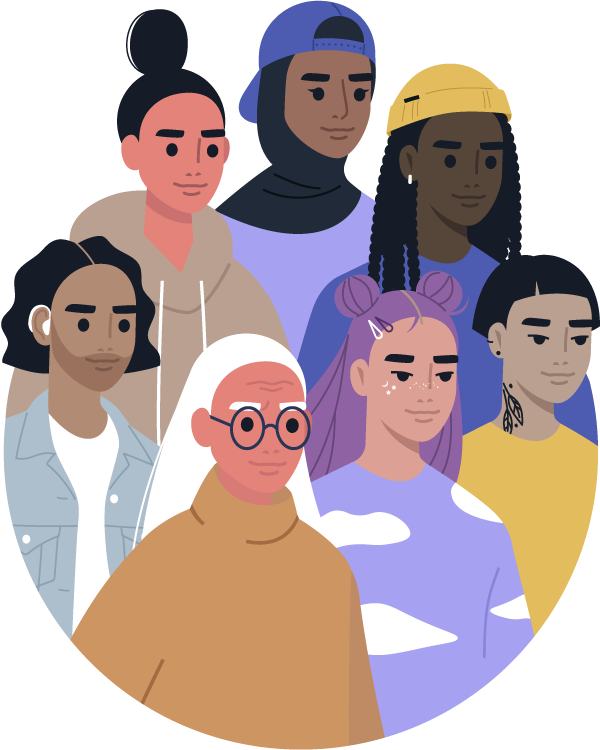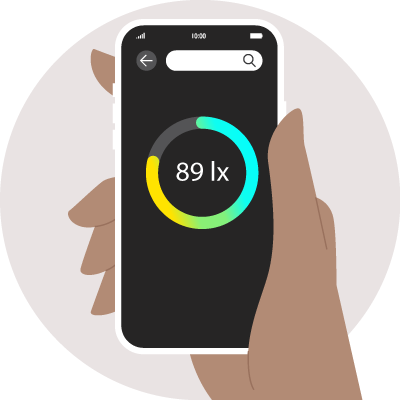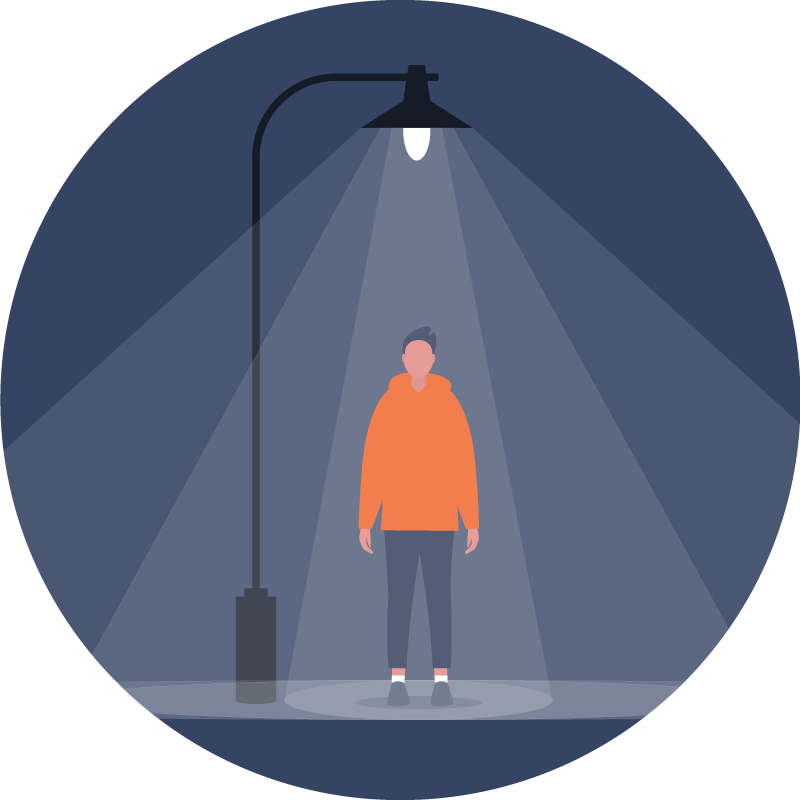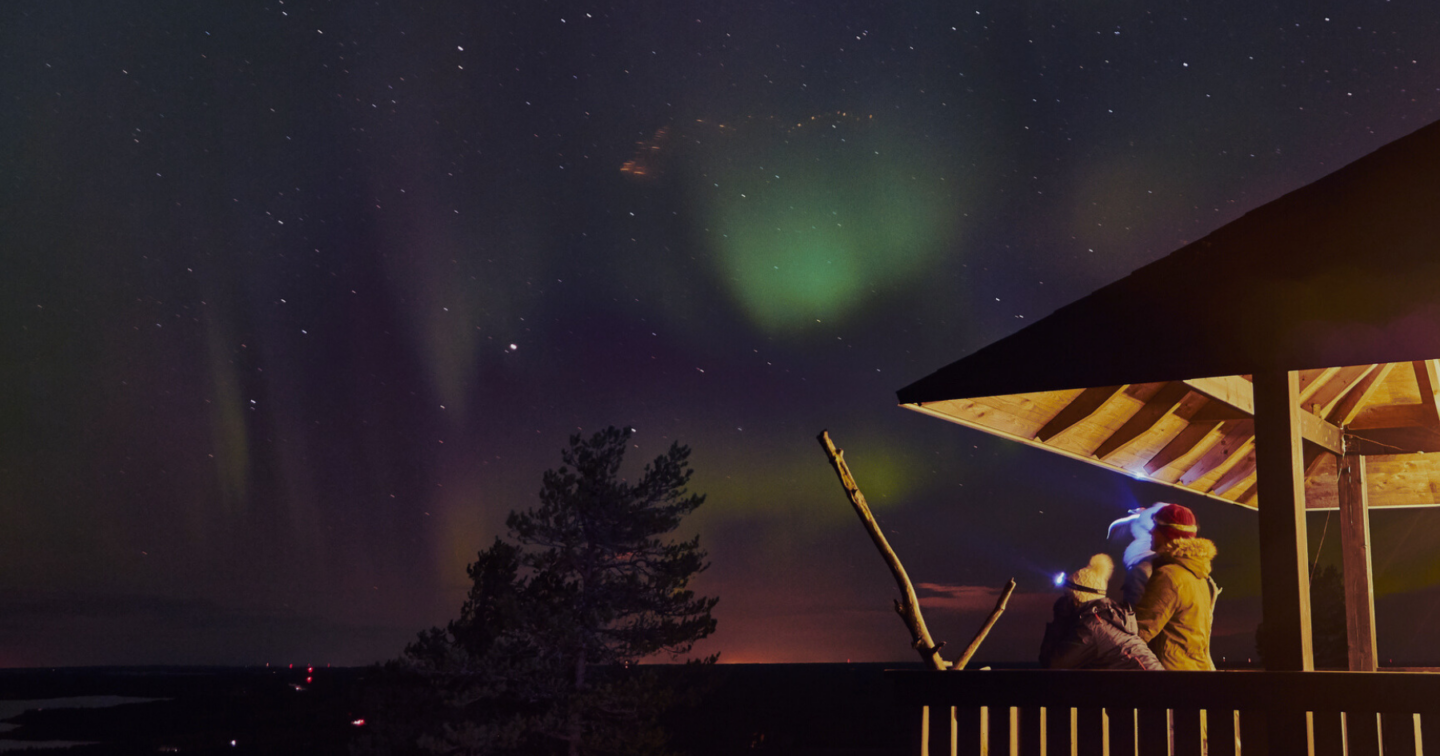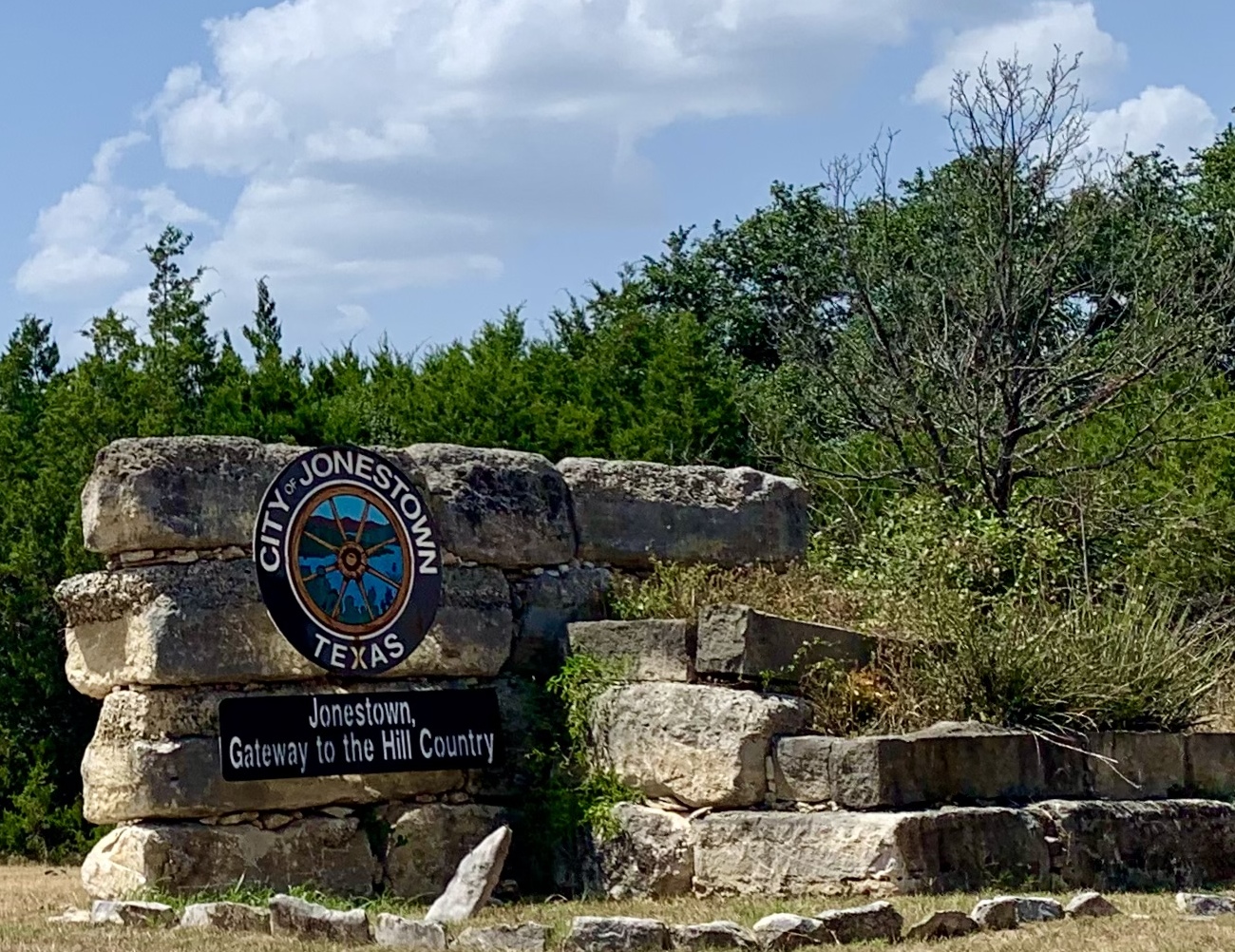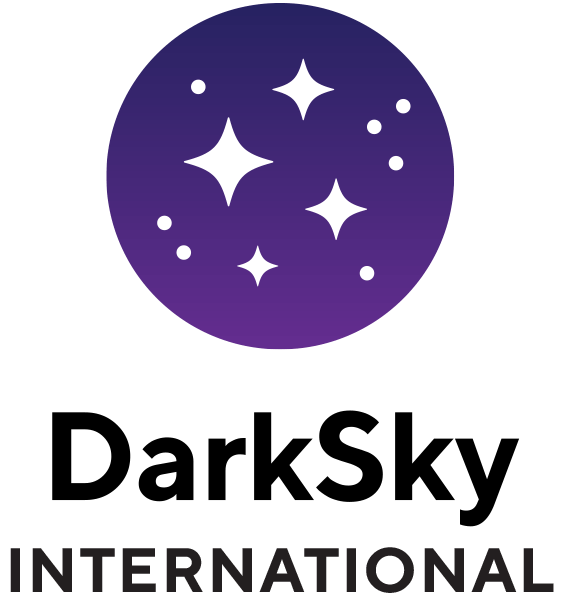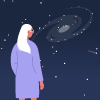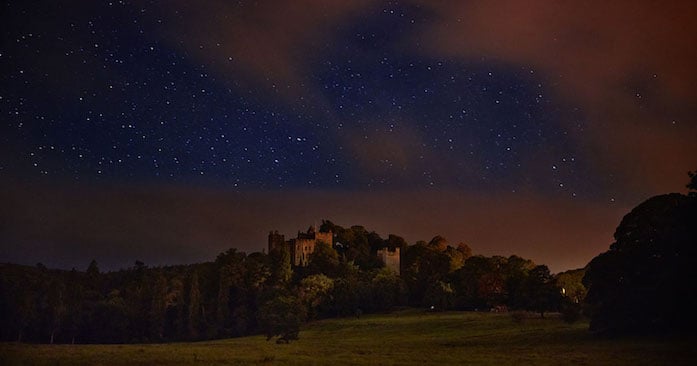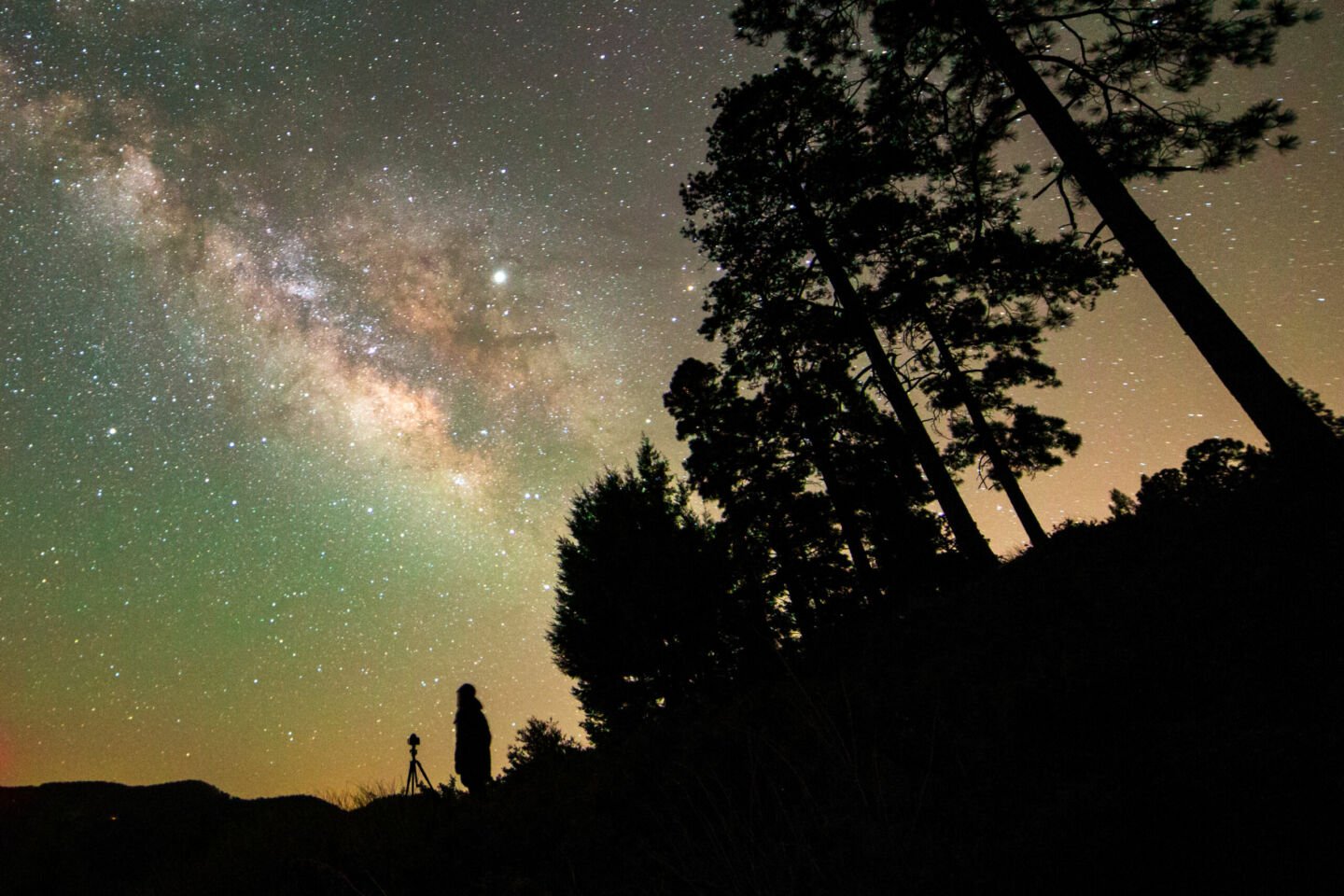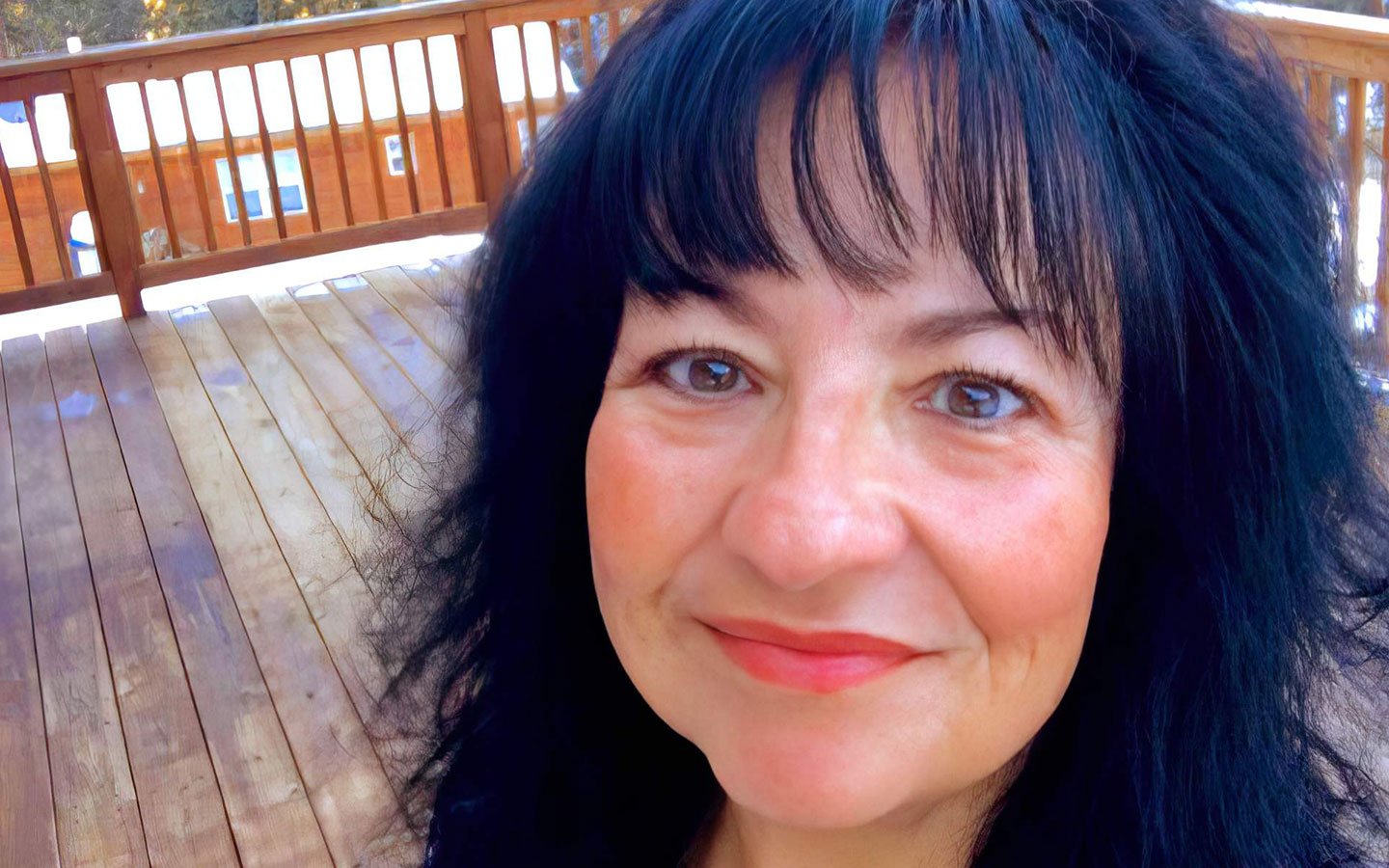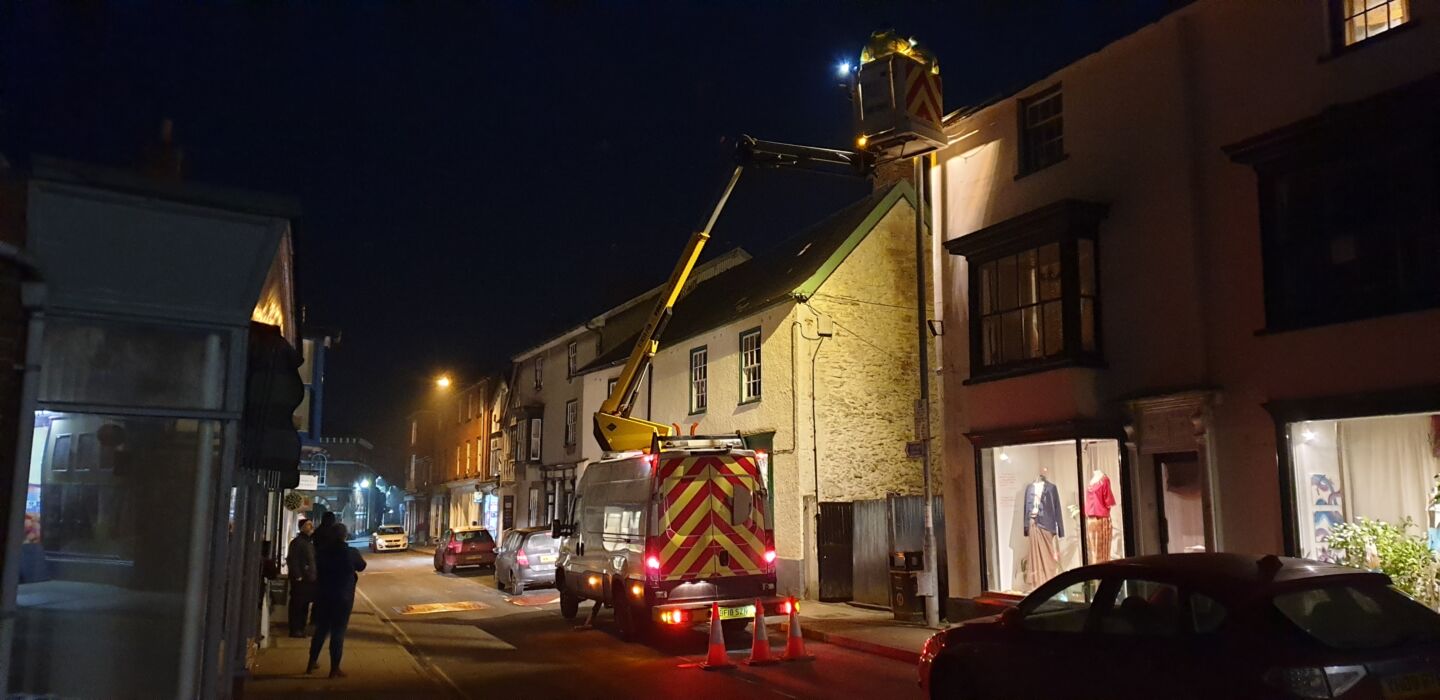
Dark skies over Kharkiv, Ukraine
Ukrainian photographer Pavlo Pakhomenko photographed the night sky above his hometown, Kharkiv, Ukraine, under blackout conditions brought by the Russian–Ukrainian war.
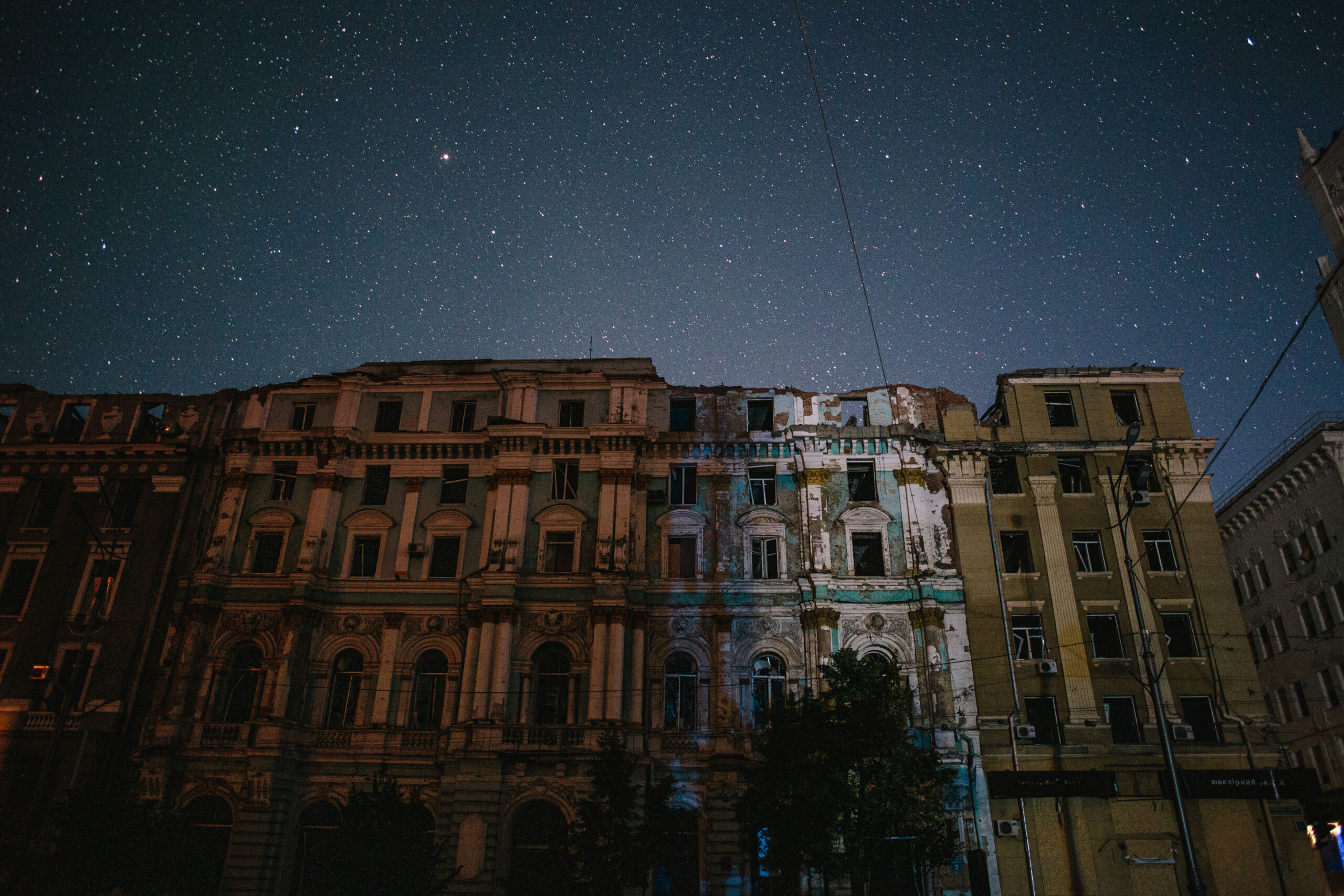
Ukrainian photographer and dark sky enthusiast Pavlo Pakhomenko recently managed to photograph the night sky above his hometown, Kharkiv, Ukraine. Under the terrible conditions of blackouts and curfews due to the Russian invasion, Pakhomenko found solace in photographing the night sky without light pollution. He shares his story and photographs here.
My name is Pavlo Pakhomenko, and I took these photos of Kharkiv, Ukraine, at night this year during the Russian-Ukrainian war.
Firstly, I welcome the international dark-sky community and thank you for your interest in my pictures! I grew up in a small town in eastern Ukraine (Donbas region, now occupied by Russia). So, there’s no wonder the dark, star-filled sky immediately enchanted me. I remember once returning home on a clear, moonless, frosty winter night, I raised my head and saw an incredible number of stars. What was it? How many were there? Why are they so beautiful? I’m sure you know these questions very well and how they can change the lives of curious children everywhere.
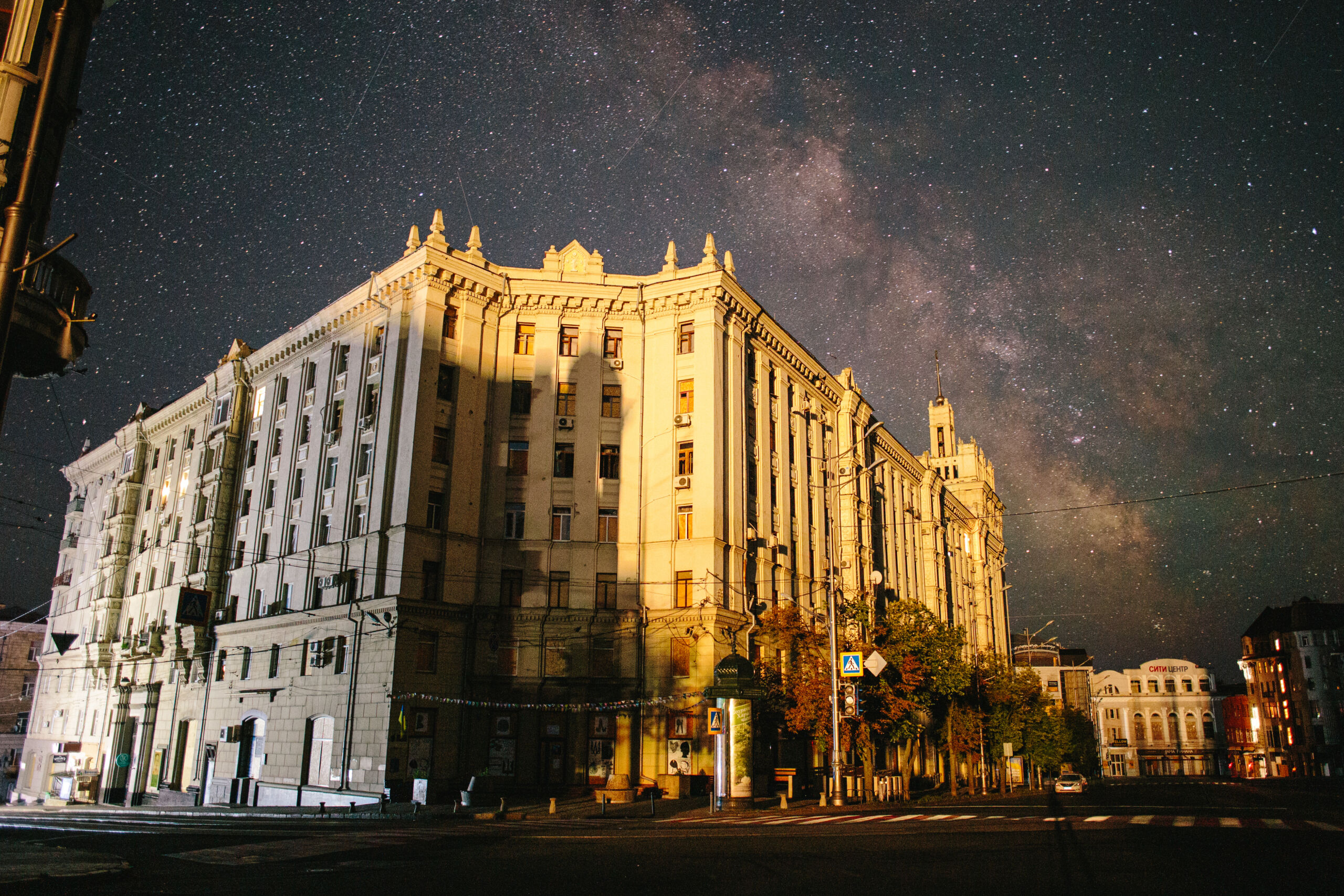
Unfortunately, we were a poor family, so my new hobby was limited to visiting the library and observing using my father’s theodolite surveying instrument (he is a builder). There was no talk of buying a telescope. But something still shook inside me when I remember the first time I saw the Galilean moons of Jupiter in that theodolite (probably 20×40)!
Then there was adolescence with teenage interests and problems. And then the big city with its two dozen bright stars. I don’t remember how exactly I came up with the idea of buying a telescope. The internet suggested buying binoculars, to begin with. That’s when excursions outside the city began. Then the telescope appeared — a refractor, of course.
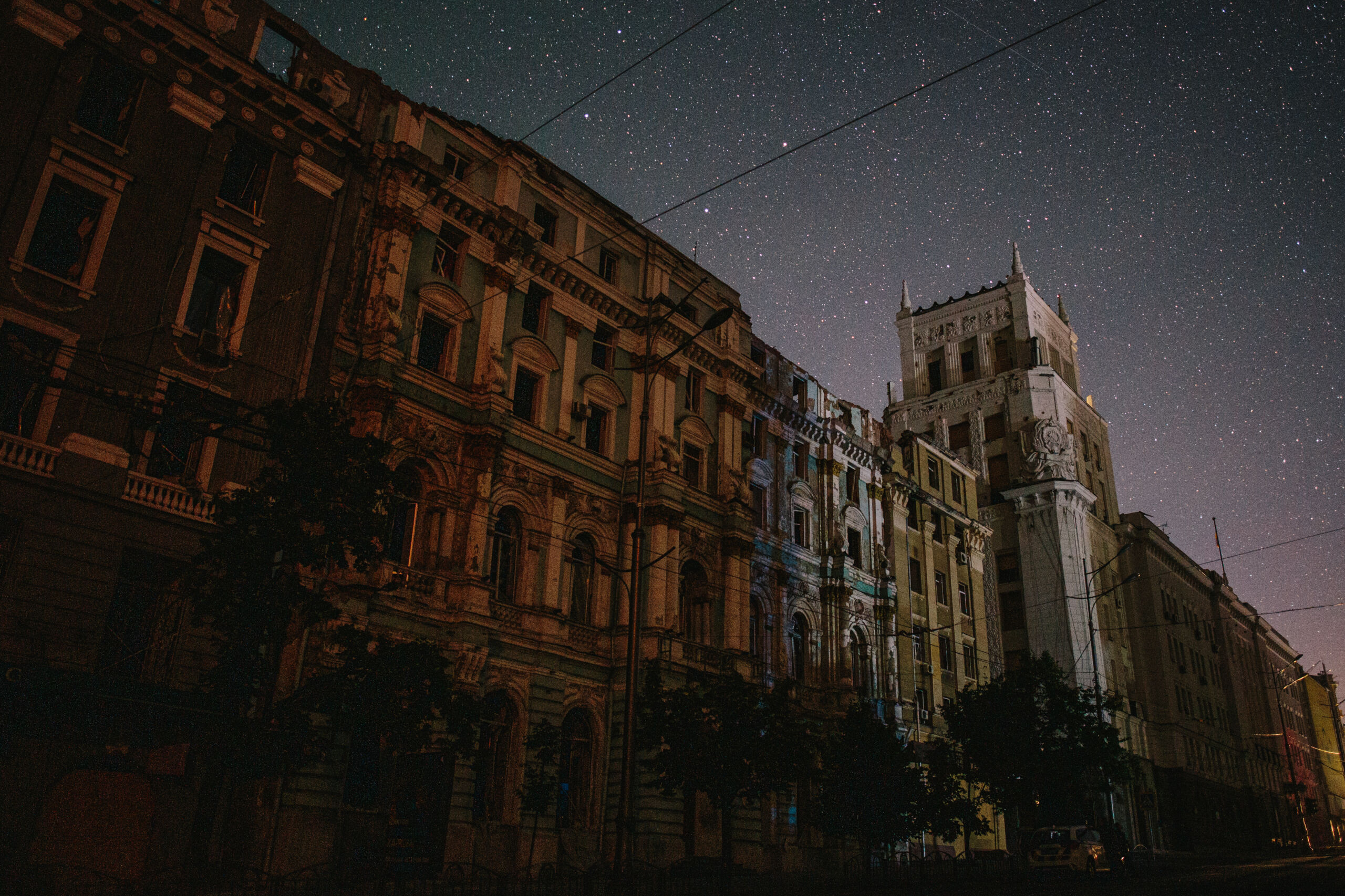
By that time, I was already a good documentary photographer working in the local mass media, and sometimes my pictures were taken by international publications, particularly of Russian invasions in Ukraine, which have been going on since 2014.
On February 24, 2022, I woke up at 5:30 am to the sound of explosions. I had documented the war before and knew well what it meant. From the window, I saw Iskander missiles launching on the northern horizon, where Russia is, and falling on my city. Anti-aircraft guns started working. And above all this hung Venus, bright as a spotlight. After packing my things and taking my dog with me, I went to Lviv, in the west part of Ukraine.
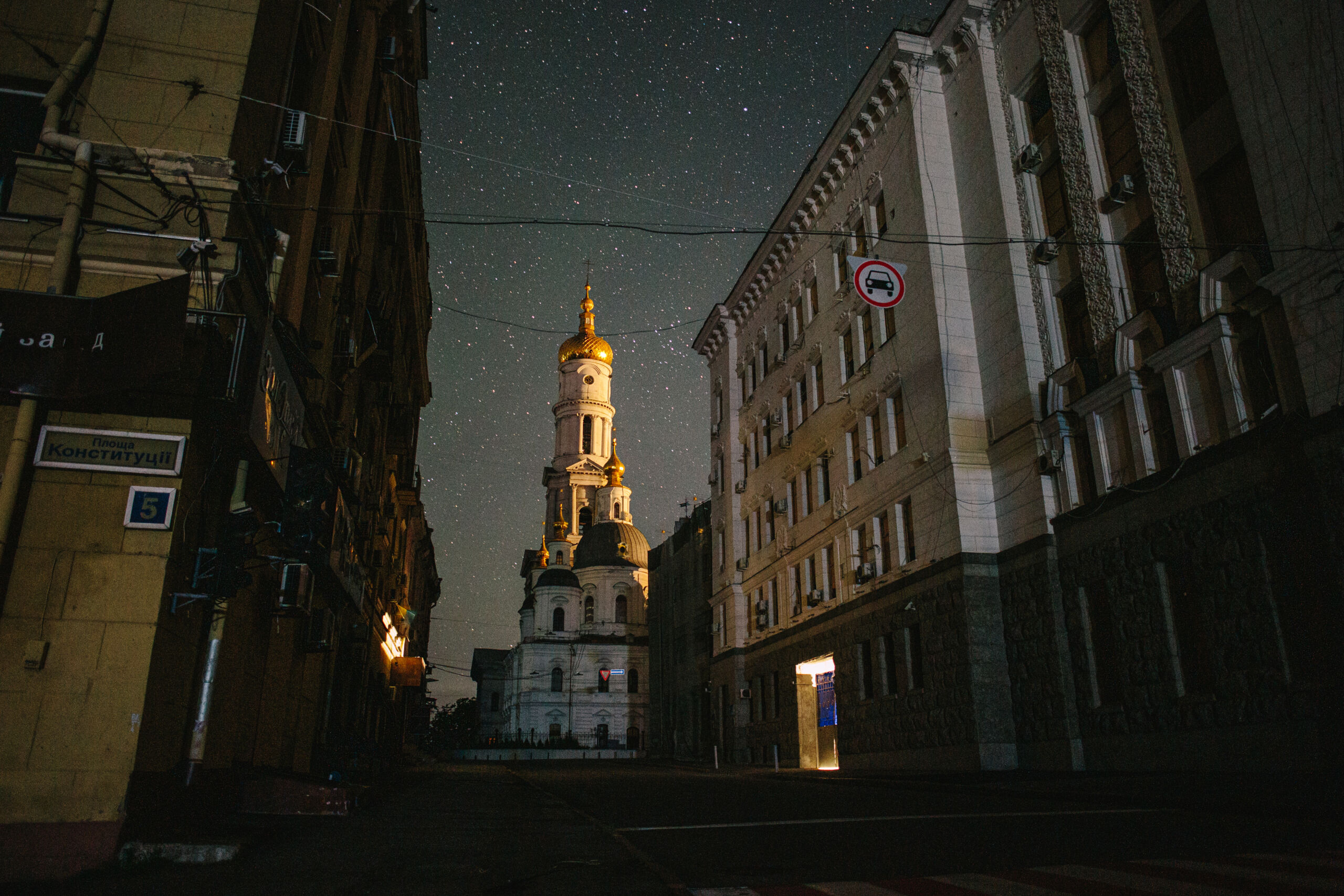
A blackout regime was introduced across the whole country starting that first night. I couldn’t help but think about the cherished dream of each of us: on a clear night over the center of the city, I would probably be able to see not just the explosions but also the Milky Way. But there was a curfew in place, so it was forbidden to be outside at night, and it was dangerous to carry a camera.
In Lviv, the blackout regime was canceled quite quickly, as Russian aircraft did not fly over the city. But only in May was I able to return home to Kharkiv when the Ukrainian military pushed the invaders a little away from the city. It is difficult to describe what I felt when I entered my apartment. I would not wish anything like that on anyone.
I immediately started looking for ways to make my dream come true. I understood that the pictures of the city with the Milky Way would be a unique historical document. Old connections from working in mass media helped. After explaining my purpose and plan to the local police and completing some necessary documents at the Ministry of Defense, I received permission to shoot.
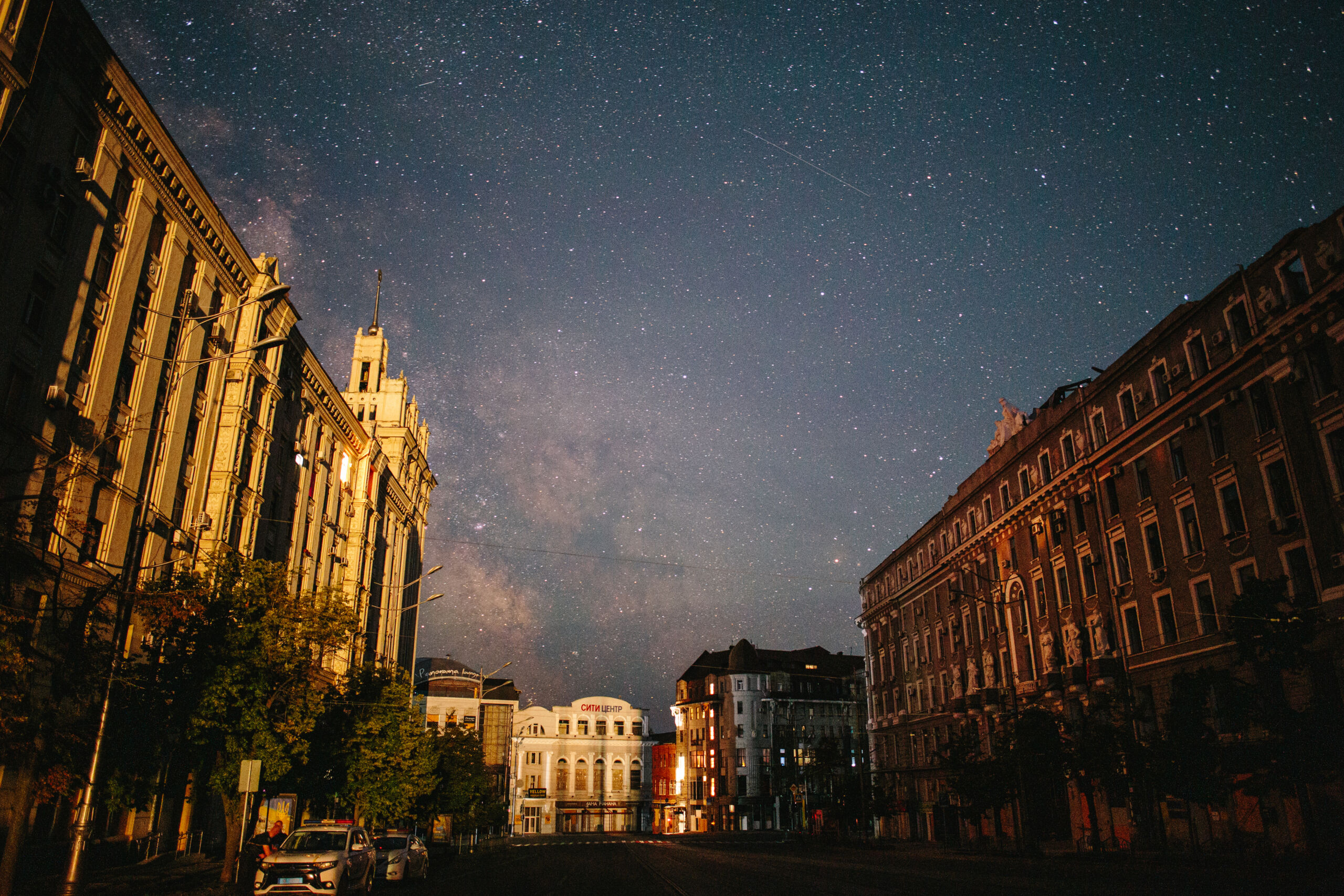
The police came to meet me at 10:45 pm, and I was given a bulletproof vest and helmet to wear. We got into the car and drove to the city center in total darkness. At each checkpoint, we stopped and reported the password (it is changed every night). At exactly 11pm, the first flash appeared in the sky: a ballistic missile.
“In a few seconds, there will be an explosion. Do not be afraid,” the policeman told me.
And indeed, after 10 seconds, “thunder” cut through the air. Then another flash, and another, and many more. Every night, the Russians hit Kharkiv with ballistic missiles. It takes one minute from launch to arrival. I wondered whether the Ukrainian Korolev thought when he created the first Soviet rocket, his invention would be used to kill his countrymen.
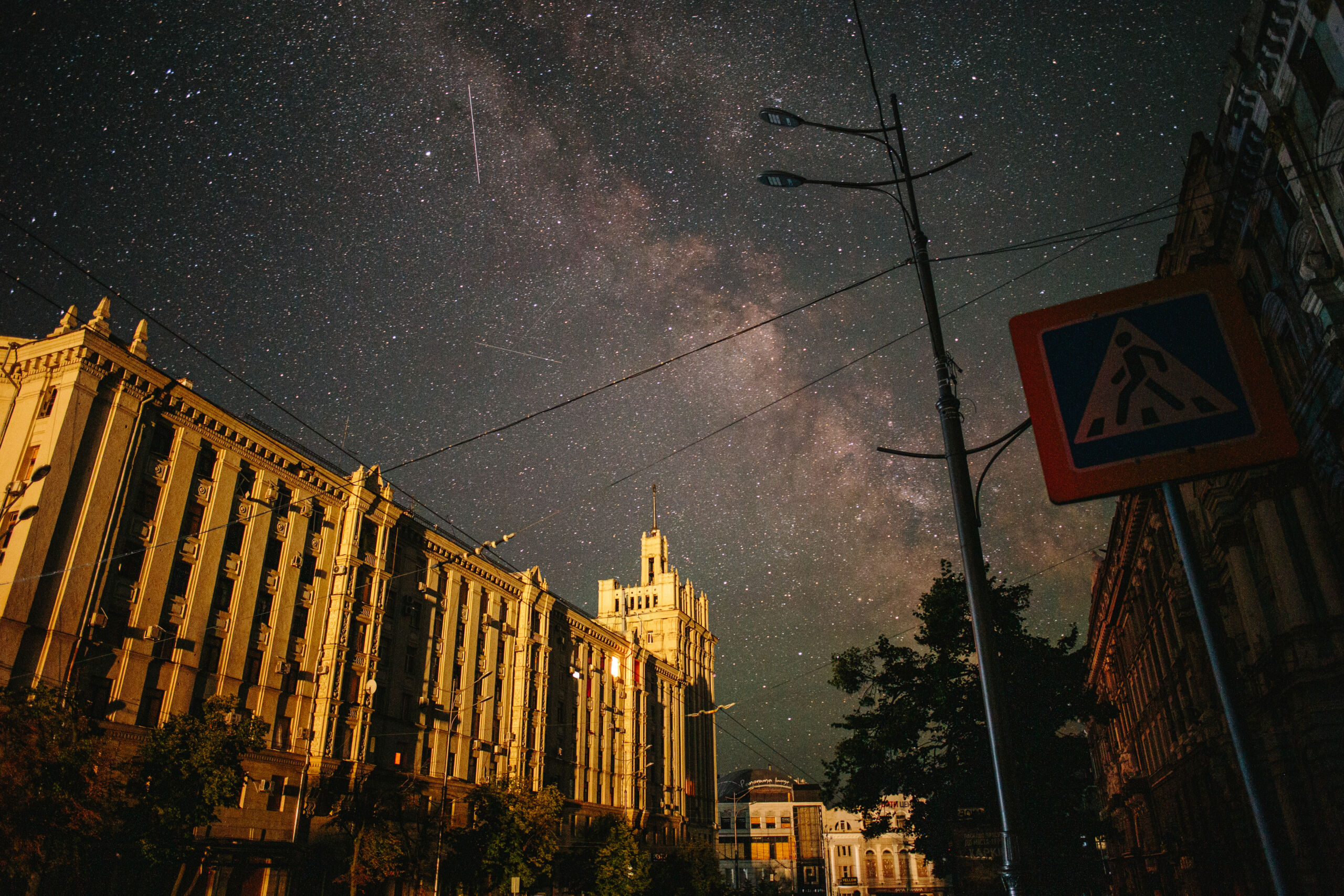
When I was finally able to get out of the car, the sky was exactly as I expected it to be. I saw the familiar bright line of the Milky Way across the sky. The only thing that still surprised me was that it reached all the way to the horizon. I had seen dark skies outside the city before, but there was always light from nearby villages on the horizon. Here, there was shockingly complete darkness on all sides.
In Ukrainian, our galaxy is called the Way of Chumaks (Chumatskiy Shlyah). Chumaks are brave travelers of the past who traveled in large carts from central Ukraine to the Crimean coast, where they primarily transported salt. A little salt was lost along the entire road, so the path became white. I imagine how, at night, the chumaks sat by the fire and looked at the sky, dreaming that somewhere there, the heavenly chumaks were also just scattering salt on the sky.
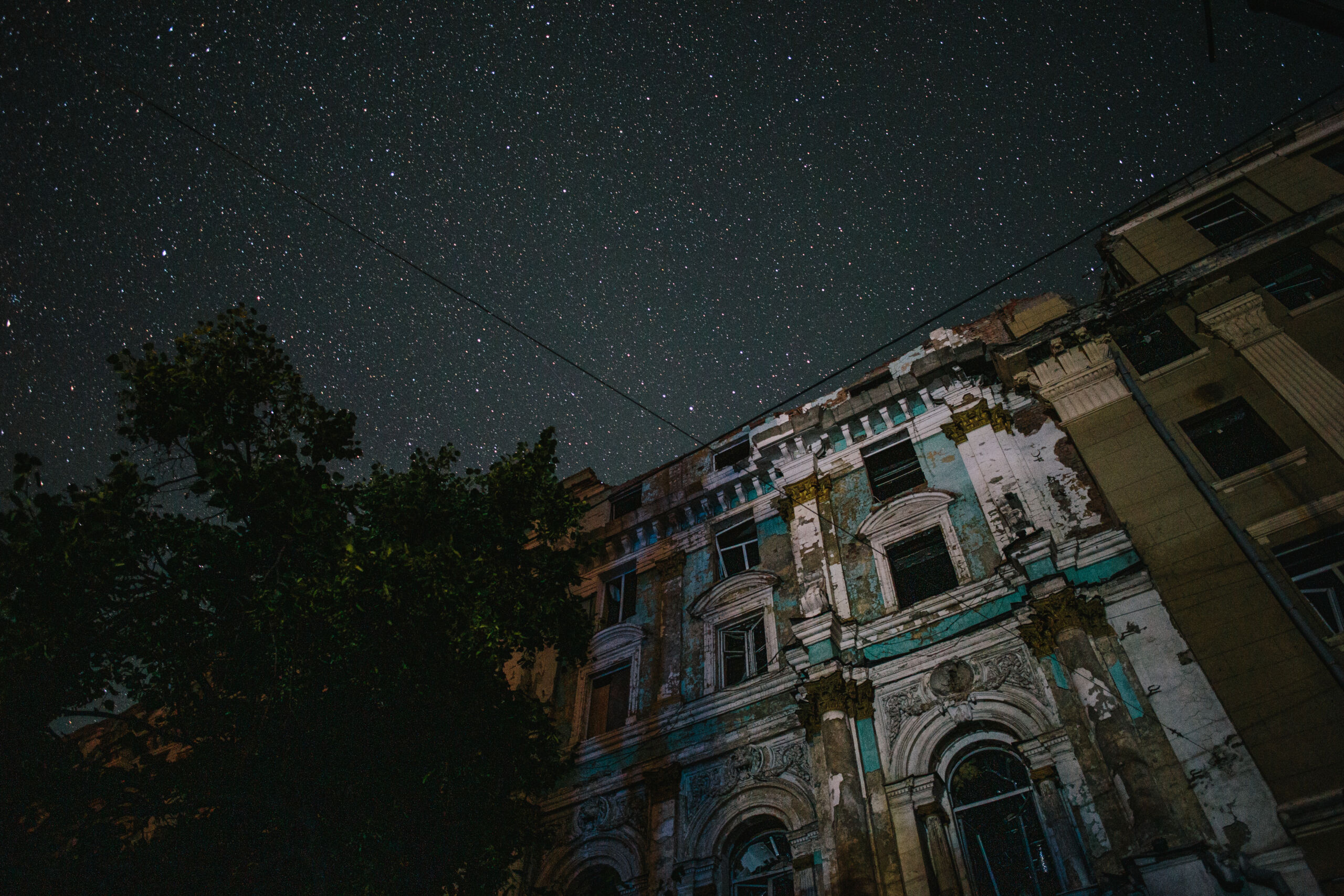
I took pictures greedily. For the first time since the beginning of the large-scale invasion, I was out at night. The night was hot. The body armor and helmet made me sweat. But I could not stop. Another angle. And one like that. Now with this house. Now this direction. Such a chance happens once in a lifetime. I rejoiced like a child — the same child that saw the sky on that winter night many years ago in Donbas.
The next morning, I left Kharkiv for Poltava, a city about 90 miles west of Kharkiv, where I have been living for two months. It is a little further from the front line, and there is time to hide in case of shelling. To say that I miss home is an understatement. The feeling of being kicked out when they want to kill you just because you are Ukrainian in your own home — I don’t know the words to convey it. I know that everyone who loves the stars understands the fluidity and insignificance of our life on Earth. But each of us knows something else. The stars remind us that we are not only small but also huge — a part of the Universe and Being. I cannot find any explanation in me for Russia’s unprovoked aggression. It seems that they are simply from some other universe.
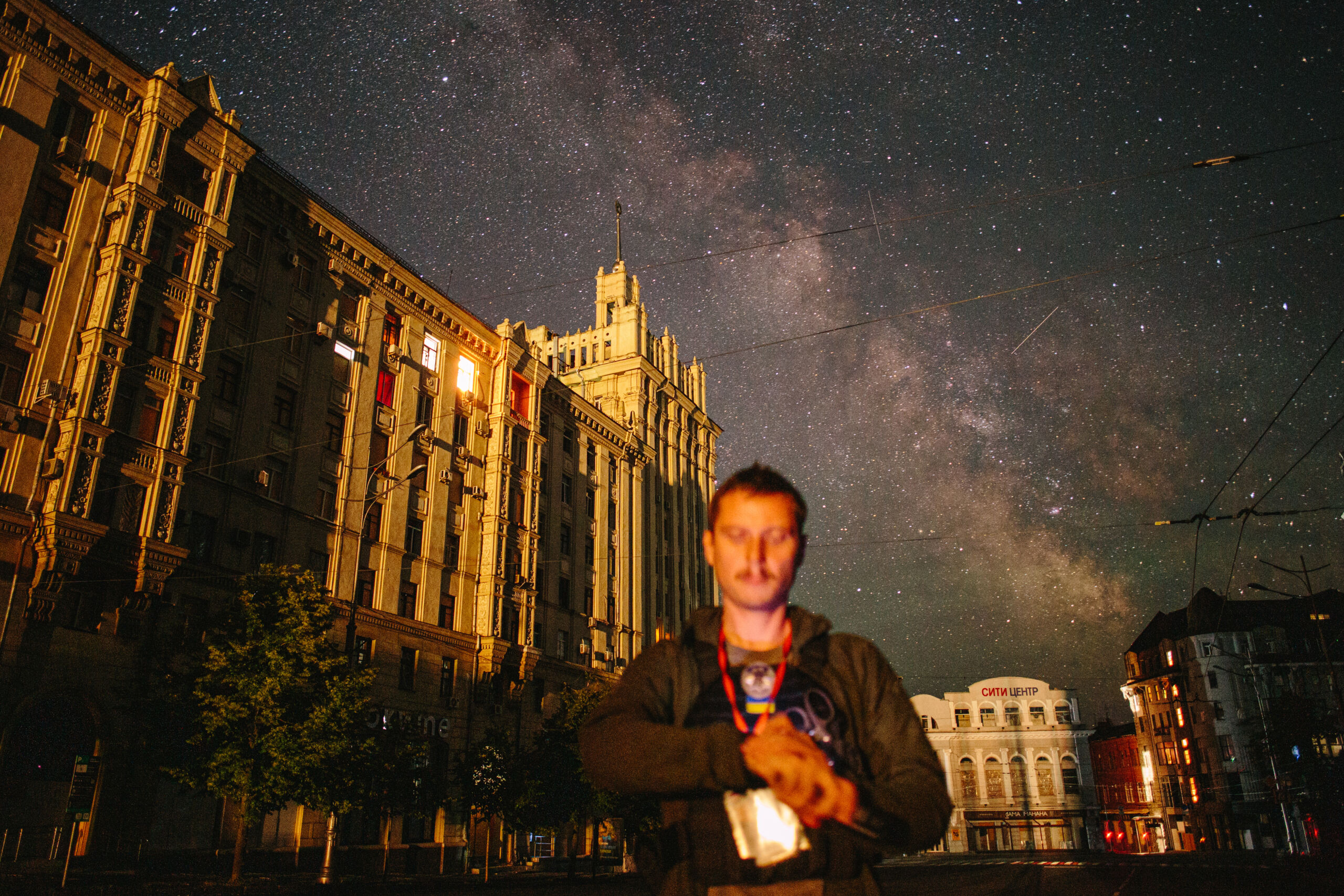
Finally, I want to thank the entire international dark-sky and astronomical communities for their support and attention to Ukraine and for the opportunity to share this story and pictures.
We all dream of a dark sky over our cities. But this should be a conscious choice made of our own free will and desire to protect and restore the natural night. Not a forced restriction because someone decided to bomb our cities from airplanes.

